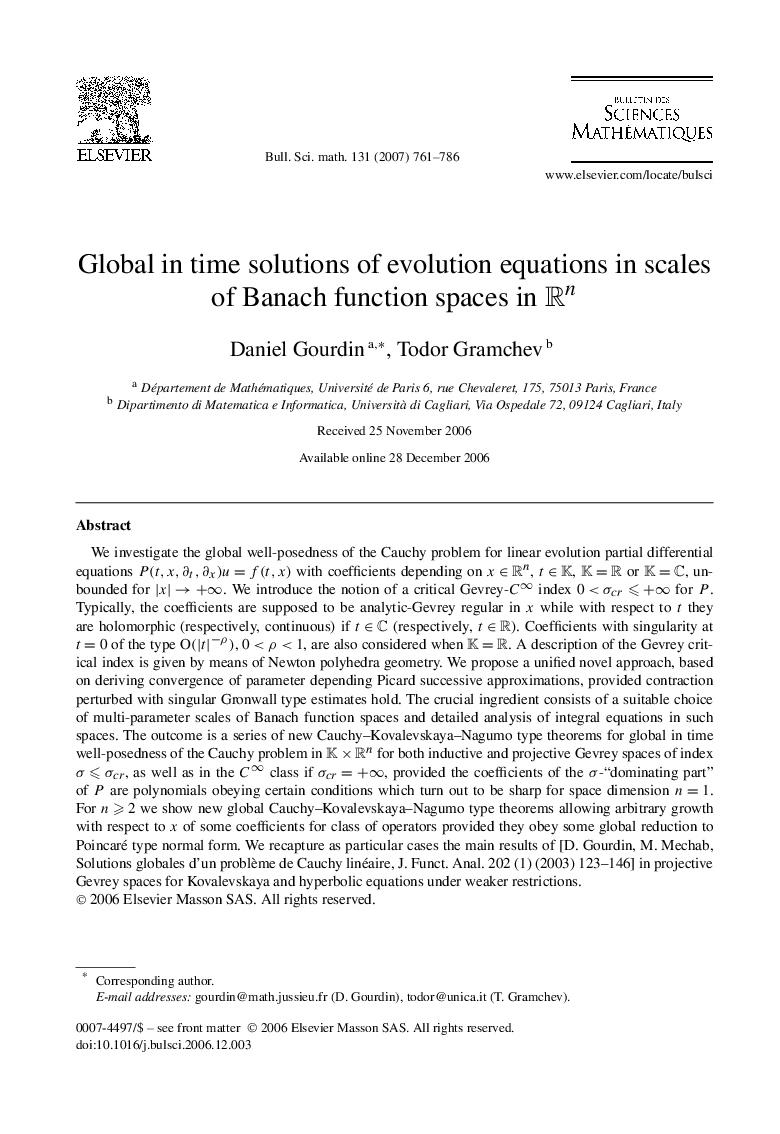| Article ID | Journal | Published Year | Pages | File Type |
|---|---|---|---|---|
| 4669403 | Bulletin des Sciences Mathématiques | 2007 | 26 Pages |
We investigate the global well-posedness of the Cauchy problem for linear evolution partial differential equations P(t,x,∂t,∂x)u=f(t,x) with coefficients depending on x∈Rn, t∈K, K=R or K=C, unbounded for |x|→+∞. We introduce the notion of a critical Gevrey-C∞ index 0<σcr⩽+∞ for P. Typically, the coefficients are supposed to be analytic-Gevrey regular in x while with respect to t they are holomorphic (respectively, continuous) if t∈C (respectively, t∈R). Coefficients with singularity at t=0 of the type O(|t|−ρ), 0<ρ<1, are also considered when K=R. A description of the Gevrey critical index is given by means of Newton polyhedra geometry. We propose a unified novel approach, based on deriving convergence of parameter depending Picard successive approximations, provided contraction perturbed with singular Gronwall type estimates hold. The crucial ingredient consists of a suitable choice of multi-parameter scales of Banach function spaces and detailed analysis of integral equations in such spaces. The outcome is a series of new Cauchy–Kovalevskaya–Nagumo type theorems for global in time well-posedness of the Cauchy problem in K×Rn for both inductive and projective Gevrey spaces of index σ⩽σcr, as well as in the C∞ class if σcr=+∞, provided the coefficients of the σ-“dominating part” of P are polynomials obeying certain conditions which turn out to be sharp for space dimension n=1. For n⩾2 we show new global Cauchy–Kovalevskaya–Nagumo type theorems allowing arbitrary growth with respect to x of some coefficients for class of operators provided they obey some global reduction to Poincaré type normal form. We recapture as particular cases the main results of [D. Gourdin, M. Mechab, Solutions globales d'un problème de Cauchy linéaire, J. Funct. Anal. 202 (1) (2003) 123–146] in projective Gevrey spaces for Kovalevskaya and hyperbolic equations under weaker restrictions.
